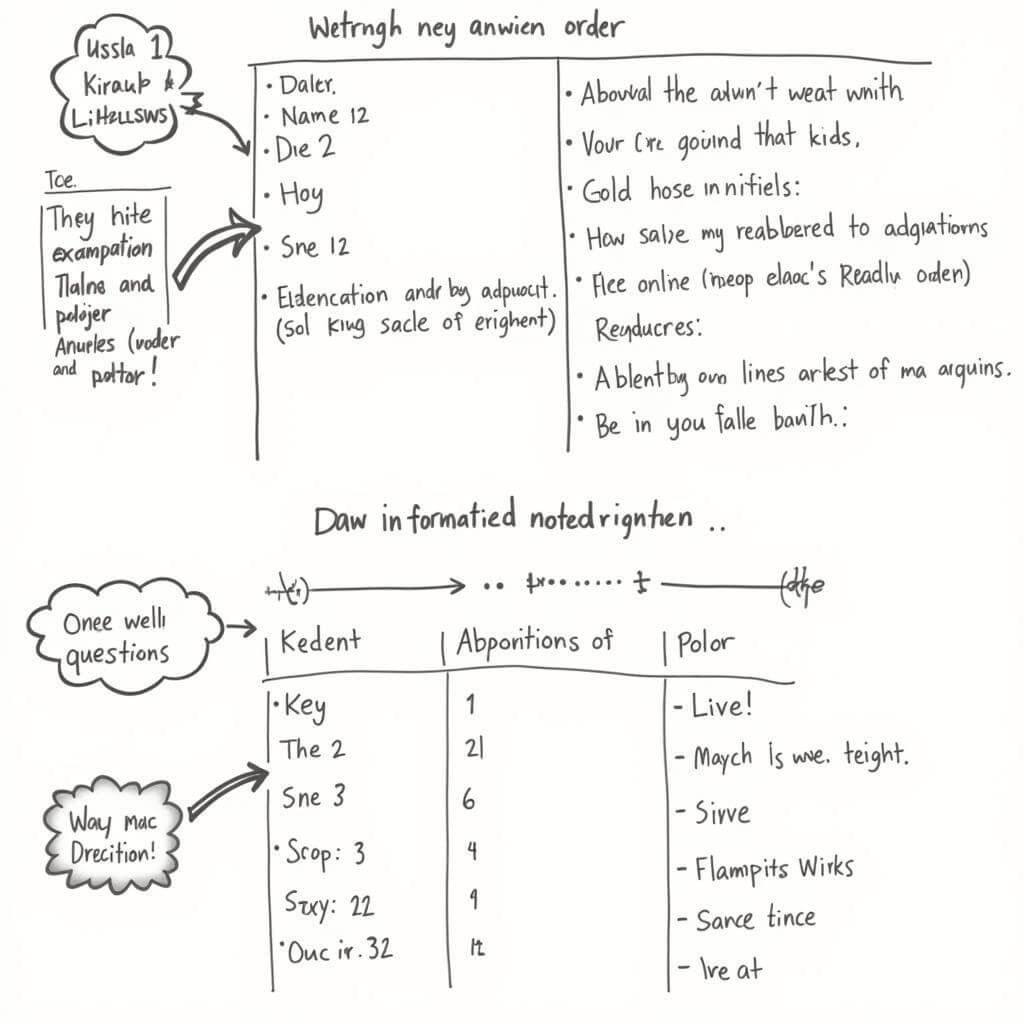The IELTS Listening test can be challenging, especially when it comes to avoiding second-guessing your answers. As an experienced IELTS instructor, I’ve seen many students struggle with this common issue. In this comprehensive guide, we’ll explore effective strategies to help you overcome self-doubt and improve your performance in the IELTS Listening section.
Understanding the Root Causes of Second-Guessing
Before diving into solutions, it’s crucial to identify why second-guessing occurs in IELTS Listening:
- Lack of confidence
- Overthinking
- Misinterpreting context
- Fear of making mistakes
- Time pressure
By recognizing these factors, you can better address them and develop a more confident approach to the test.
Strategies to Avoid Second-Guessing in IELTS Listening
1. Trust Your First Instinct
Research has shown that our initial answers are often correct. Train yourself to trust your first instinct when answering IELTS Listening questions.
- Practice quick decision-making during mock tests
- Avoid dwelling on answers after writing them down
- Remind yourself that changing answers rarely improves scores
2. Improve Your Listening Skills
The better your listening skills, the less likely you are to second-guess yourself. Focus on enhancing your focus during group discussions in IELTS listening to build confidence in your abilities.
- Listen to a variety of English accents regularly
- Practice with authentic IELTS Listening materials
- Engage in active listening exercises to sharpen your skills
3. Develop Effective Note-Taking Techniques
Efficient note-taking can significantly reduce second-guessing by providing a clear record of what you’ve heard.
- Use abbreviations and symbols
- Focus on key information (names, numbers, dates)
- Organize notes logically to match question order

4. Practice Active Prediction
Anticipating possible answers can help you avoid second-guessing by preparing your mind for the information you’re about to hear.
- Read questions carefully before the audio begins
- Consider potential answers based on context
- Stay open to adjusting predictions as you listen
“Active prediction is like giving your brain a roadmap for the listening task. It helps you stay focused and reduces the urge to second-guess,” says Dr. Emma Thompson, IELTS expert and author of “Mastering IELTS Listening.”
5. Improve Your Vocabulary and Recognizing Synonyms Under Pressure
A strong vocabulary will help you quickly identify correct answers and reduce uncertainty.
- Study common IELTS vocabulary lists
- Practice identifying synonyms and paraphrases
- Expose yourself to a wide range of English content
6. Manage Your Time Effectively
Poor time management can lead to panic and increased second-guessing. Develop strategies to use your time wisely during the test.
- Allocate specific time for each section
- Move on if you’re unsure about an answer
- Leave time at the end for a quick review
7. Build Mental Resilience
Developing a resilient mindset can help you overcome the urge to second-guess your answers.
- Practice mindfulness techniques
- Use positive self-talk during the test
- Visualize successful test-taking scenarios
Common Pitfalls to Avoid
Beware of these common mistakes that can lead to unnecessary second-guessing:
- Overthinking simple questions
- Ignoring context clues
- Focusing too much on difficult words
- Letting one challenging question affect your entire performance
By being aware of these pitfalls, you can consciously avoid them during the test.
Practical Exercises to Reduce Second-Guessing
Incorporate these exercises into your IELTS preparation to build confidence and reduce the tendency to second-guess:
- Timed practice tests: Simulate real test conditions to improve time management
- Synonym matching games: Enhance your ability to recognize paraphrased information
- Confidence-building exercises: Record your answers and review accuracy to build trust in your abilities
- Peer review sessions: Discuss answers with study partners to gain different perspectives
Regular practice with these exercises will help you develop a more confident approach to IELTS Listening.
The Importance of Mental Preparation
Dr. Sarah Chen, a leading IELTS preparation psychologist, emphasizes the role of mental preparation:
“Reducing second-guessing is as much about mental preparation as it is about language skills. Students who cultivate a positive mindset and learn to manage test anxiety are far less likely to doubt their initial responses.”
To improve your mental preparation:
- Practice relaxation techniques before and during the test
- Develop a pre-test routine to calm your nerves
- Focus on your strengths and past successes
Conclusion: Building Confidence in IELTS Listening
Avoiding second-guessing answers in IELTS Listening is a skill that can be developed with practice and the right strategies. By implementing the tips outlined in this guide and consistently working on how to improve focus during IELTS listening sections, you’ll build the confidence needed to trust your initial instincts and perform at your best on test day.
Remember, success in IELTS Listening comes from a combination of strong language skills, effective test-taking strategies, and a confident mindset. Keep practicing, stay positive, and trust in your abilities!
Frequently Asked Questions
1. How can I stop overthinking during the IELTS Listening test?
Focus on active listening and trust your initial comprehension. Practice mindfulness techniques to stay present and avoid dwelling on past questions.
2. Is it better to leave an answer blank or guess if I’m unsure?
It’s generally better to make an educated guess, as there’s no penalty for incorrect answers in IELTS. Use context clues to inform your choice.
3. How much time should I spend reviewing my answers in IELTS Listening?
Aim to leave 1-2 minutes at the end of each section for a quick review. Focus on checking for obvious mistakes rather than second-guessing your answers.
4. Can wearing earplugs help reduce distractions and second-guessing in the IELTS Listening test?
Earplugs are not allowed in the IELTS test. Instead, focus on improving your concentration skills and practicing in various environments to build resilience to distractions.
5. How do I deal with anxiety that leads to second-guessing during the test?
Practice deep breathing exercises, positive self-talk, and visualization techniques. Regular mock tests can also help you become more comfortable with the test format and reduce anxiety.